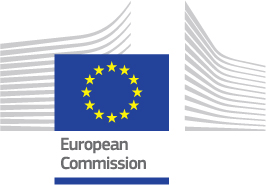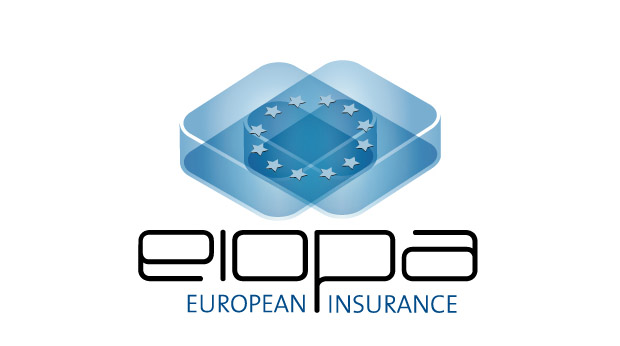
Partners
-

European Commission - DG REFORM
The Reform and Investment Task Force (SG REFORM) coordinates and provides tailor-made technical support to EU Member States, in cooperation with the relevant Commission services. The support is primarily provided through the Technical Support Instrument (TSI). The goal is to support Member States’ efforts to design and implement resilience-enhancing reforms, thereby contributing to the EU’s recovery from the COVID-19 crisis, improving the quality of public services and getting back on the path of sustainable and inclusive growth.
The Technical Support Instrument (TSI) is the EU programme that provides tailor-made technical expertise to EU Member States to design and implement reforms. The support is demand driven and does not require co-financing from Member States. It is an important pillar of the EU’s initiative to help Member States mitigate the economic and social consequences of the outbreak of the COVID-19 crisis.
Smart, sustainable, and socially responsible reforms help to strengthen the resilience of our economies and societies. The TSI offers Member States a unique service to help them tackle reform challenges. The support can take the form of, for example, strategic and legal advice, studies, training, and expert visits on the ground. It can cover any phase in the reform process, from preparation and design to development and implementation of the reforms.
SG REFORM in EU-SDFA
- General coordination and steering
- Direct provision of expertise
- Policy coordination and link to other technical support initiatives with EU NCAs
- Financial support and project management
-
European University Institute - Florence School of Banking and Finance
The Florence School of Banking and Finance, part of the Robert Schuman Centre of the European University Institute, is a key point of reference for training and debate on banking and finance policy at the European level. The aim of the School is to develop a common culture of regulation and supervision in the European Union. It does so through policy debate, training and applied research and in close interaction with its network of leading academic institutions. The banking and financial professionals involved in the School’s activities include members of European and non-European central banks, national supervisory and control authorities, European institutions, academia and the private sector, including numerous high profile figures. The School’s training courses currently focus on four thematic areas: (1) Financial Regulation and Governance, (2) Digital Finance, (3) Sustainable Finance, (4) Methods. Since its establishment in 2016, more than 24.000 people from over 80 countries have participated in over 240 training courses and debate activities of the School.
EUI-FBF IN EU-SDFA
- Curriculum preparation and design
- Organization and coordination of residential and online training activities
- Collection and elaboration of participants’ feedback
- Support for the organization of workshops
- Communication and engagement
ESAs in EU-SDFA
- Policy input
- Provision of expertise
- Steering and monitoring of training activities
- Organization of workshops for beneficiary NCAs
- Management of online learning platform
-

European Banking Authority
The European Banking Authority (EBA) is a specialised agency of the European Union that works to ensure high-quality regulation and supervision of EU banks. It promotes stability of the financial system, transparency of banking markets and the protection of users of financial services. It works to strengthen international supervisory coordination, EU supervisory convergence to promote a level playing field for banks and investment firms.
The tasks of the EBA are defined in a wide variety of EU regulations and directives in the area of financial and banking regulation, which are all aimed at fostering the single market approach.
The EBA is in charge of developing the common regulatory framework which is applicable to all banking institutions and investment firms across the EU in the same manner: the EU single rulebook on banking.
The rules developed by the EBA for the banking sector enable appropriate prudential oversight of credit institutions and investment firms and foster the harmonisation of supervisory standards and practices amongst EU banking supervisors. In addition, the EBA has an important role in promoting consumer protection in relation to financial products and services offered by payment institutions, e-money issuers and mortgage credit providers.
-

European Insurance and Occupational Pensions Authority
The European Insurance and Occupational Pensions Authority (EIOPA) is an independent advisory body to the European Commission, the European Parliament and the Council of the European Union. It is one of the European Supervisory Authorities and one of the EU agencies carrying out specific legal, technical or scientific tasks and giving evidence-based advice. In this way, EIOPA helps shape informed policies and laws at EU and national levels.
EIOPA seeks to protect the public interest by contributing to the short-, medium- and long-term stability, effectiveness and sustainability of the financial system for the Union’s economy, citizens and businesses. This mission is pursued by promoting a sound regulatory framework and consistent supervisory practices in order to protect the rights of policyholders, pension scheme members and beneficiaries and contribute to public confidence in the EU’s insurance and occupational pensions sectors.
-

European Securities and Markets Authority
ESMA is the EU’s financial markets regulator and supervisor with the mission to enhance investor protection, promote orderly financial markets and safeguard financial stability.
The authority achieves its mission through active cooperation with National Competent Authorities (NCAs). To ensure the most effective regulation and supervision of EU financial markets as a whole, ESMA is working closely with the other European Supervisory Authorities competent in the field of banking (EBA), and insurance and occupational pensions (EIOPA).
ESMA aims to be a strong, effective, open and transparent European financial markets regulator and supervisor. It is accountable to the European Institutions, and reports regularly to the European Parliament and the Council. ESMA and the NCAs contribute to the development of an efficient EU single market by reaching common interpretation of EU rules and fostering common supervisory approaches.